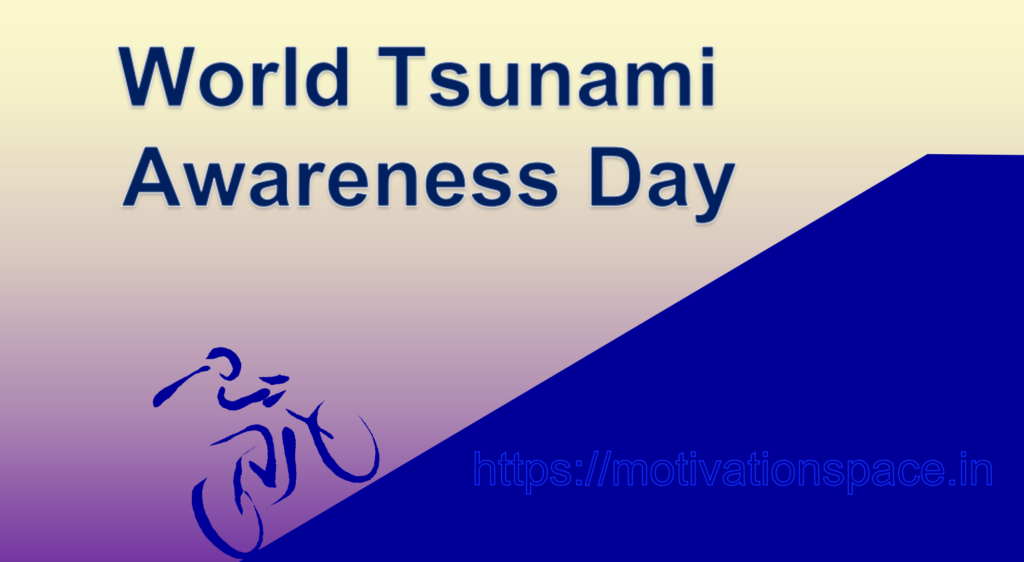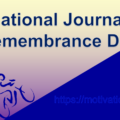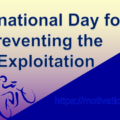Contents of this article
World Tsunami Awareness Day is an internationally recognized observance held annually on November 5th. It was established by the United Nations to raise global awareness about the dangers of tsunamis, promote preparedness, and emphasize the importance of early warning systems. The day provides a platform for governments, communities, and individuals to come together, share knowledge, and take action to mitigate the impact of tsunamis.
Key aspects of World Tsunami Awareness Day:
Promoting Awareness:
The day is primarily about raising awareness regarding tsunamis, their causes, and their devastating consequences. The goal is to educate people about the risks and measures they can take to protect themselves and their communities.
Remembering Past Tsunami Events:
World Tsunami Awareness Day often includes commemorations of past tsunamis that have resulted in significant loss of life and property. It serves as a solemn reminder of the need for preparedness and resilience.
Risk Reduction and Preparedness:
The day emphasizes the importance of disaster risk reduction and preparedness. Communities in tsunami-prone areas are encouraged to develop and test evacuation plans, build resilient infrastructure, and establish effective early warning systems.
Global Collaboration:
It encourages international collaboration in the sharing of expertise, technology, and best practices related to tsunami awareness and preparedness. Governments, organizations, and communities worldwide are urged to work together to reduce the impact of tsunamis.
Early Warning Systems:
An essential aspect of tsunami awareness is the development and operation of early warning systems. These systems help to detect tsunamis in advance, allowing authorities to issue timely warnings and save lives.
Climate Change Implications:
Climate change is increasing the risk of tsunamis due to the potential for more extreme weather events and rising sea levels. World Tsunami Awareness Day also acknowledges the role of climate change in affecting the frequency and intensity of tsunamis.
Sustainable Development Goals (SDGs):
The observance of World Tsunami Awareness Day aligns with several Sustainable Development Goals (SDGs), including those related to climate action, disaster risk reduction, and the protection of life and property.
World Tsunami Awareness Day: Safeguarding Lives and Coastal Communities
Tsunamis, the immense ocean waves triggered by seismic activity, pose one of the most formidable natural threats to coastal regions around the world. These catastrophic events have historically left in their wake devastation, loss of life, and widespread destruction. Recognizing the need to raise global awareness about tsunamis and promote preparedness, the United Nations designated November 5th as World Tsunami Awareness Day.
A Sobering Reminder of Tsunami Vulnerability
World Tsunami Awareness Day is more than just an annual observance; it’s a solemn reminder of the vulnerability of coastal communities to these destructive forces of nature. The date, chosen to coincide with the anniversary of the 1854 Ansei-Tokai earthquake and tsunami in Japan, serves as a symbol of the long history of tsunamis and their profound impact on human lives.
Tsunamis can occur as a result of various events, including underwater earthquakes, volcanic eruptions, and meteorite impacts. Their ability to travel across entire ocean basins means that communities far from the source of the tsunami can be affected. The Indian Ocean tsunami in 2004, which struck multiple countries and resulted in the loss of more than 230,000 lives, is a stark example of the far-reaching consequences of these natural disasters.
The Pillars of World Tsunami Awareness Day
Educating and Informing:
Central to the significance of World Tsunami Awareness Day is the emphasis on education. It’s a day for sharing knowledge about tsunamis, their causes, and their devastating consequences. The more people understand the risks, the better prepared they can be. Educational initiatives and awareness campaigns aim to reach individuals, families, and entire communities.
Commemorating Past Events:
Many countries and communities use this day to commemorate past tsunamis and remember those who lost their lives. By honoring the memory of these events, people are reminded of the importance of preparedness and resilience.
Risk Reduction and Preparedness:
Tsunami preparedness is not just an abstract concept; it’s about concrete actions taken to reduce the impact of tsunamis. Communities in tsunami-prone areas are encouraged to develop and test evacuation plans, construct resilient infrastructure, and establish effective early warning systems. These measures are not merely theoretical; they save lives when implemented correctly.
Global Collaboration:
Tsunamis do not respect borders, and global cooperation is essential. International collaboration facilitates the sharing of expertise, technology, and best practices related to tsunami awareness and preparedness. It ensures that even the most vulnerable communities receive support and guidance.
Early Warning Systems:
Early warning systems are a cornerstone of tsunami preparedness. These systems are designed to detect tsunamis in advance, allowing authorities to issue timely warnings to potentially affected areas. The United Nations’ Intergovernmental Oceanographic Commission (IOC) plays a vital role in the development and coordination of these systems.
Climate Change Implications:
Climate change is making the world more susceptible to tsunamis. Rising sea levels, coupled with more extreme weather events, increase the risk of tsunamis occurring. Recognizing and addressing the implications of climate change on tsunami risk is a crucial component of World Tsunami Awareness Day.
The Sustainable Development Goals (SDGs)
World Tsunami Awareness Day aligns with several Sustainable Development Goals (SDGs), emphasizing the interconnected nature of global challenges:
Goal 13 (Climate Action):
Recognizing the links between climate change and tsunamis, the day underscores the importance of mitigating climate change to reduce the frequency and intensity of these events.
Goal 11 (Sustainable Cities and Communities):
Tsunami preparedness includes resilient urban planning and infrastructure to protect lives and property in coastal cities and communities.
Goal 1 (No Poverty), Goal 2 (Zero Hunger), and Goal 3 (Good Health and Well-being):
By reducing the risk of tsunamis, we protect the livelihoods, food security, and health of vulnerable coastal populations.
Conclusion for World Tsunami Awareness Day
World Tsunami Awareness Day is a global call to action. It urges individuals, communities, governments, and organizations to recognize the gravity of the tsunami threat and to take practical steps to protect lives and livelihoods. While tsunamis may be among the most formidable natural disasters, our collective efforts can significantly reduce their impact. By educating, remembering, reducing risks, and fostering international cooperation, we ensure that coastal communities are better prepared to face the challenges of the future. World Tsunami Awareness Day reminds us that, even in the face of such formidable forces of nature, knowledge and preparedness are our best defenses.
World Tsunami Awareness Day serves as a global reminder of the threat posed by tsunamis and the importance of preparedness, early warning systems, and international cooperation in reducing the impact of these natural disasters. It provides an opportunity for communities, governments, and organizations to work together to save lives and protect vulnerable coastal regions. Feel free to contact us for any query related to this article.


